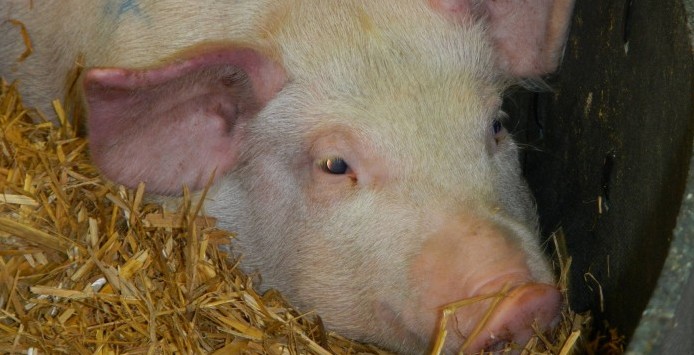Shane McAuliffe’s family produces 50,000 pigs per year for the Truly Irish brand. He is secretary of the Irish Pig Health Society, secretary of the Irish branch of the European Pig Producers and sits on the Irish Farmers Association National Pig and Pigmeat committee
I’m writing this from a beach lodge in Mozambique, part of a two week pre- Christmas break in Africa. African swine fever (ASF) is endemic here, first identified in 1960 and since 1994 all regions have reported outbreaks.
On arrival to the small regional airport of Vilankulo, I was met with bright colourful signs warning me not to bring meat into the country. Even last week, I was on a South African Airways flight from Cape Town to Johannesburg and the inflight magazine carried a two- page advert by the Department of Environmental Affairs on biological invasion. I have to question why the EU authorities are not being so proactive in educating travellers?
I wrote a paper for the Royal Veterinary College in the summer on biosecurity protocols to keep ASF out of Ireland and one area I felt set alarm bells ringing was the fact that ASF could easily enter at our border points. After the Belgian outbreak, a meeting of the National Pig Health Council agreed that being proactive with education and awareness is the best thing all stakeholders can do.
In September, a friend of mine saw that a well-known brand of Irish ham was using Belgian pigmeat. The company was faced with a large pig producer protest, which highlighted that not only was an Irish brand using imported pigmeat at a time of severely low pig prices, but it also presented an opportunity to bring ASF into the conversation.
Earlier in the summer, one of Ireland’s best-known retailers was found to be using Dutch bacon in one of its own brands – producers responded then by blocking aisles in the supermarket in question. Both companies immediately made the switch to Irish pigmeat.
The fact the protests were so well attended could be very much down to the fact that farmers have been struggling to see the light at the end of the tunnel and felt they needed to vent their frustration. In my column in July I highlighted how pig prices saw no traditional rise in the second quarter.
No one could have predicted then that the average price of €1.40/kg would remain stagnant. Spiralling feed costs dealt producers a double blow. It has been the worst year for Irish pig producers in 15 years. It has taken its toll on many, and for the first time in many years, a number of pig farms are on the market for sale as a going concern. Teagasc held a number of ‘cost reduction workshops’ to help producers identify areas where money could be saved.
It’s difficult to find any positivity, but figures released in October showed that Irish pigmeat exports for January to July were up by 4% on 2017 figures. There has been major growth in Japan, Philippines, Australia and South Korea, while it has been announced that a two- year, €4 million campaign will be launched to promote Irish beef and pigmeat among the South East Asian markets. China’s ASF outbreak should, of course, bring good fortunes to our prices early in 2019.
Tail talking point
Last month I gave a presentation at the European Commission meeting of Rearing Pigs with Intact Tails. I detailed the pilot study led by the Department of Agriculture and it is hoped many more Irish farms will take part in it in 2019. Intact tails has been a big talking point and the Commission made it clear that EU member states that do not make an effort will be in trouble.
Closer to home, I have been busy travelling with my part-time role with Easyfix, promoting its range of environmental enrichment. I’m glad to say that in the UK the products are now stocked with Andrew Maskery, Holmefield Farm Services, The George Vet Group, James Buckingham (Scotland) and Ulster Livestock (Northern Ireland).
I’ve been giving guest lectures on pig production to students at a number of third-level institutions, have welcomed many different visitor groups to the farms and have been busy with on-farm research work. I hope my next update will have more positive news, despite whatever impact Brexit has.




